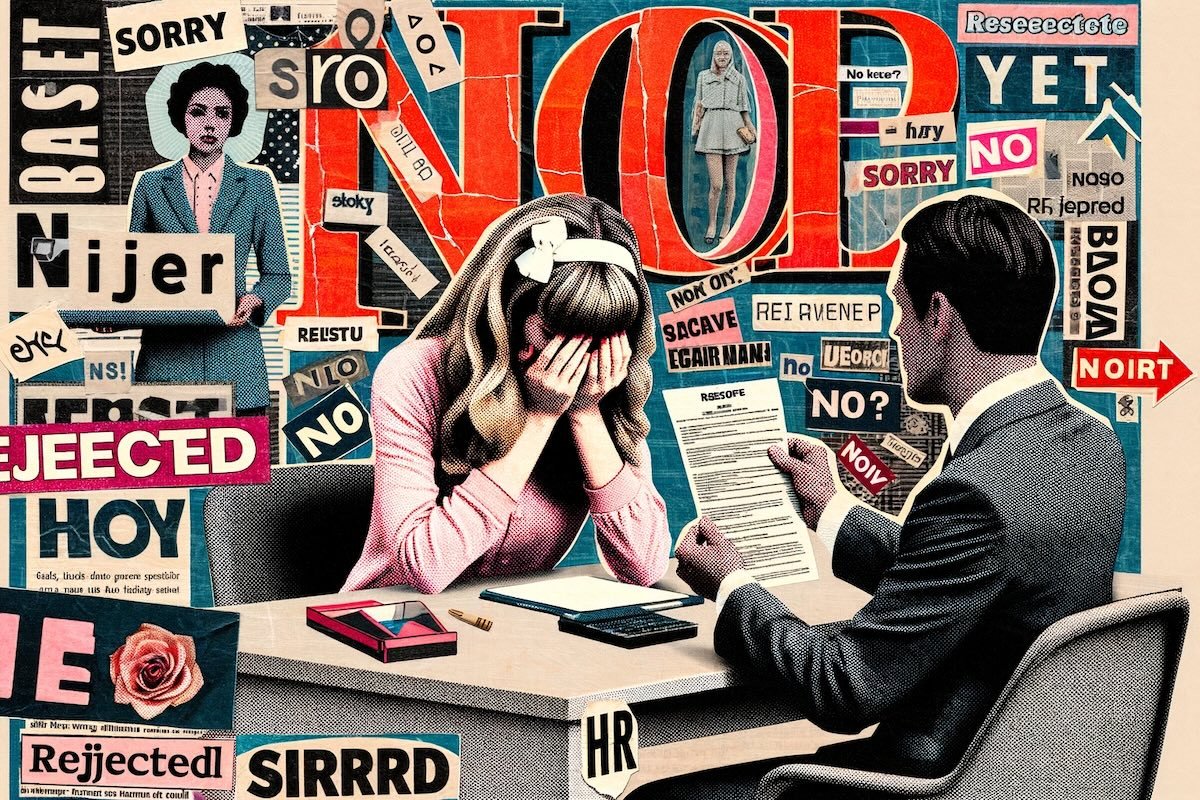"So, why are you interested in this industry?"
As a job candidate, you will encounter some version of this interview question, so be prepared. A hiring manager will ask—and it's important for you to know your whys, both for your own career success and (more immediately) for interview success.
Welcome back to "
How to Answer Anything," our series that navigates how to answer the most common—but also the most challenging—common interview questions. By employing our three-step method, you'll arrive at every interview with the most dazzling answers. Let's dive in.
Table of Contents
Why Interviewers Ask This Question
Simply put, the interviewers and company want to hire someone who they think will stick around and do great work. They also want someone who will fit in with the company culture.
One way they can gauge that is if you have a sincere interest in the industry, company, or role. That's why a general answer isn't going to cut it.
For example, it's not a guarantee that if you're a die-hard about live events that you'll work your whole career at AEG, but since AEG is in the events business, they're certainly going to be more interested in candidates that can at least connect their interest in events to the why they wanted to apply for the job.
Even if you're only looking for a job that offers benefits, you will want to research the company and industry because this is a question hiring managers and recruiters love to ask.
How to Answer "Why Are You Interested in This Industry?" in A Job Interview
First things first, let's identify the many forms this question could take. It's a real shapeshifter. The interviewer is likely to ask you this question in regard to the specific job, the organization, or the industry. The question might look like this:
- Why are you interested in [COMPANY]?
- Why are you interested in [JOB TITLE]?
- Why are you interested in [INDUSTRY]?
- Why are you interested in [CAREER CHANGE]?
Step 1: Focus on your biggest "element" of change
Basically, our advice is to have an answer for all of these variations, but focus on the biggest "element" you're changing in interviewing for this job. For example, suppose you're a social media coordinator who has worked largely for media and communication organizations.
In this particular interview, however, you're going after a social media coordinator role for an agricultural organization. Since industry is the largest "element" of change in your career, make sure to have the most thoughtful answer around that.
Example Answer: I know that I have worked extensively in [FORMER INDUSTRY] as a [ROLE], but I have become increasingly interested in [NEW INDUSTRY] especially when it comes to [UNIQUE INDUSTRY VALUE PROP] and [UNIQUE INDUSTRY VALUE PROP]. I believe that I can bring my skills as a [ROLE] to this industry—and I am so excited for the opportunity to do just that.
Step 2: Research, research, research
Gather 'round for a little story. Without naming names, I know someone whose career I consider to be very impressive. This person has worked (and currently) for some of the biggest tech companies out there. However, about ten years ago this person was interviewing at a very well-known retailer for a Director position when they were completely stumped by this simple two-word question, "Why [COMPANY]?"
This person was stumped—and spoiler alert—did not get the job.
The lesson here? Do not
come to the interview without doing your research. There is literally (literally!) no excuse. The internet is your friend. Here are some simple ways to conduct some pre-interview reconnaissance on the organization.
- Check out their website (pay close attention to their blog, their "about us" section, and their "meet the team" page. Read about their company's mission statement. Learn it. Heck, memorize it.
- Go over to their social profiles. If they have Instagram, follow them. Read their tweets on Twitter. Go through their LinkedIn presence and learn more about the team there.
- Google them. Have they been in the news in the past few years? Read all articles about them. Know about their work, why it's important, and what impact it has had.
- Glassdoor them. This is actually helpful for you, the candidate. Find out what their culture really looks like—with verified reviews from current and past employees.
- Sign up for their newsletter. We promise this is a good use of your inbox to sign up for their newsletter, open it, and read it.
Example Answer: I want to work for [ORGANIZATION] because you are the model of success when it comes to [INDUSTRY]. I recently read the CEO's piece in [PUBLICATION] and everything they said really resonated with my values as an employee. I would love the opportunity to work on [PROJECT or INITIATIVE] within [ORGANIZATION].
Step 3: Be prepared to explain your transferrable skills
We can't stress this point enough to every job applicant out there. Regardless of industry, experience, or education—you have some transferable experience.
Sometimes, you need to be a little more creative to identify and explain it. The job description is a great place to determine what skills and qualifications the employer is looking for.
The good news is that pretty much every hiring manager will appreciate some creativity and learning about your positive impact at work.
What If The Interviewer Doesn't Ask This Question?
In the case that an interviewer doesn't ask this question, make sure to share your answer anyway. In the case that an interviewer doesn't ask this question, make sure to share your answer anyway. One of the common mistakes we see good candidates make is not using this opportunity to share their industry knowledge, knowledge of the company, and more.
Here's how. Toward the end of the interview, when the interviewer asks if you have any questions, have some lined up. After you ask those, take the time to explain why you are so interested in this role at this organization.
This way, you are effectively ending your interview by explaining your overall "why"—as well as all of those interesting facts you learned about the organization when you did your research
.
Example Answers to "Why Are You Interested in This Industry?"
When you're asked this question in an actual interview follow our advice above and provide a concise yet polished answer. You'll turn this simple question into the chance to really stand out among the competition. Here are a few examples:
How to Show Your Interest In The Company
"I felt particularly drawn to this company because I've been a long-time user and believe you are reshaping the car buying experience for people. The first car I bought took me six months because I had to go to multiple dealerships and each salesperson took hours of my time. With this company, people will be able to buy cars online saving them time, money, and creating more transparency in the process. I would love to work at such an innovative company and bring my skillset here."
How to Show Your Interest In The Industry
"Online education is really democratizing how people learn and allowing anyone to access top degrees and classes from the top professors. I think the future of education is online, and I see this as an opportunity to use my skills in an emerging industry with lots of potential."
How to Show Your Interest In a Specific Job
"I believe I can succeed in this project management role because of my incredible organizational and communication skills. In my last job, I was tasked with setting up projects and leading status meetings. It was by far my favorite part of the job and I love being able to see a project get completed. That's why I decided to double down on this skill and pursue a full-time career in project management at this company."











